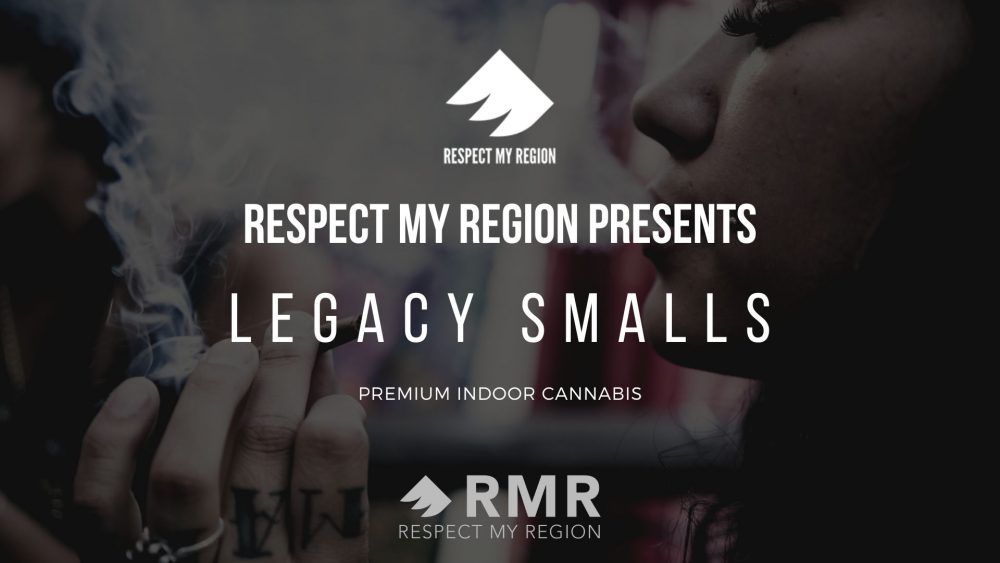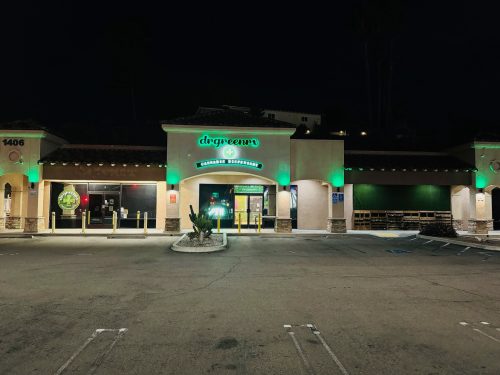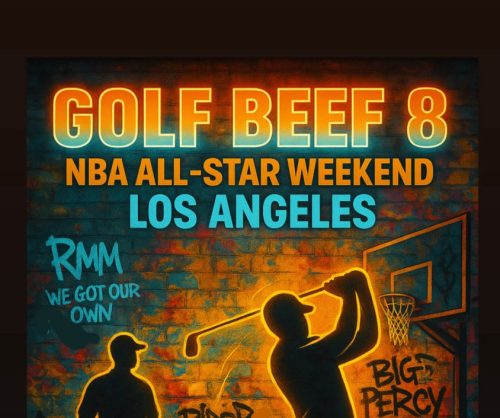Cookies Cannabis is the biggest weed brand in the world. Period. The face of the empire is none other than Gilbert Milam Jr. aka Berner.
What started out as a close-knit group of breeders, connoisseur smokers, and master marketers, eventually turned into a family. A cannabis family focused on breeding the best tasting, looking, and feeling flower in the California medical market. Girl Scout Cookies was a weed phenomenon that blew up into a lot more than just a brand.
Where some seek to take the spotlight, Cookies has always been more than just the artist and he’ll be the first to shine the light on his breeders. “I look at my breeders like producers. They’re so instrumental to the end product and really [are] the creatives driving the basis of a product, just like producers do in the music process,” Berner tells us. It started out as a strain with a family supporting it and has now grown into a full-blown empire. While the group goes deeper and wider than Berner, he’s a rapper whose face is synonymous with being behind the helm of the brand.
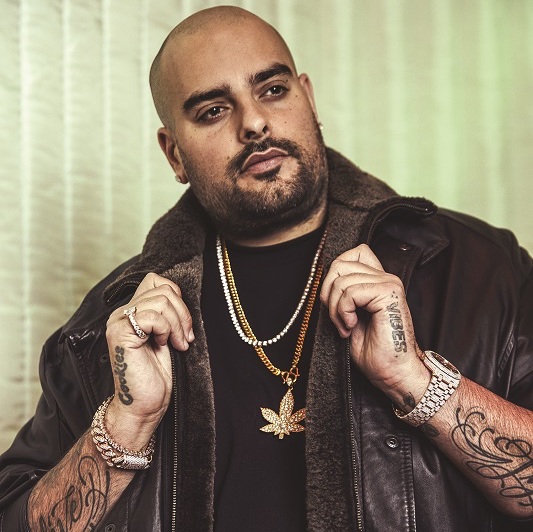
Photo by Farid via Cookies
The Relationship Between the Bay and the Pacific Northwest
The PNW has long had an affection for the Bay and when I asked Berner about the connection he said, “Yeah, you know the Bay and Seattle, well the Pacific Northwest in general, have always had a cool little vibe. It’s very similar in culture, in cannabis, food, and even the weather. There’s always been a ton of love between the Bay and the Pacific Northwest.”
Cookies first crossed our radar at RMR when we were back in Seattle around 2011-2012. However, the Bay and Seattle have long had ties. Beyond just Seattle, the Pacific Northwest, and Portland especially, have had strong ties with the Bay. Marshawn Lynch is an individual who’s almost as big in Seattle as he is in his hometown of Oakland. The late rapper, The Jacka, was beloved in the streets of Seattle. Syko, who produced classics for Mac Dre like, “The Thizzle Dance,” was from Portland and was residing in Seattle at the time of his untimely passing.
When reflecting further on the ties between the regions, Berner remarked, “It’s everything, music, cannabis, lifestyle, vibe. Jack told me, early on, when he came out there, there was a lot of hungry artists that made him step his game up. Like, he was rapping a certain way, but when he got out here, he saw how hungry artists were and it made him step his game up.”
The Hip-Hop and Cannabis Crossover
Rappers love weed and the weed industry loves to crank out rapper weed. Berner may be bigger in weed than he is in the rap game at this point, but he still holds respect in both lanes. A true Bay Area raised hustler, you can find the roots of his home turf strengthening the fruits of his labor in both the cannabis and music industries. The cannabis industry has seen its fair share of white labeled celebrity brands come in and leave the market just as fast. It takes true dedication to understand how the recreational cannabis game moves, as well as a passion for the plant for brands to be able to succeed.
There have been many duds seen within the space, but Cookies, as a weed brand built by a rapper, has seemed to succeed using celebrity activations. Rick Ross has launched a brand alongside Cookies, Steve Lobel has equity in a Lemonnade store, and Snoop has done Cookies collabs. There are even some rumblings about an upcoming collab with Lil Baby.
I asked Berner what he looks for in working with musicians on weed collabs and he mentioned, “I mean for me, when it comes to artists, they have to be passionate about this. A lot of people, they can just put out a brand or a strain and it’ll work ’cause they rap. But for me, it’s what’s in the bag. How much time do you have to put into this brand? Are you really going to be hands-on with breeders, pushing the needle on moving products, building menus? It really depends on who’s down. Some collabs have really worked, some haven’t. Some artists don’t like to leverage their social media to push the brands, some do. It really depends on how hungry the artist is and how much passion they have for this space.”
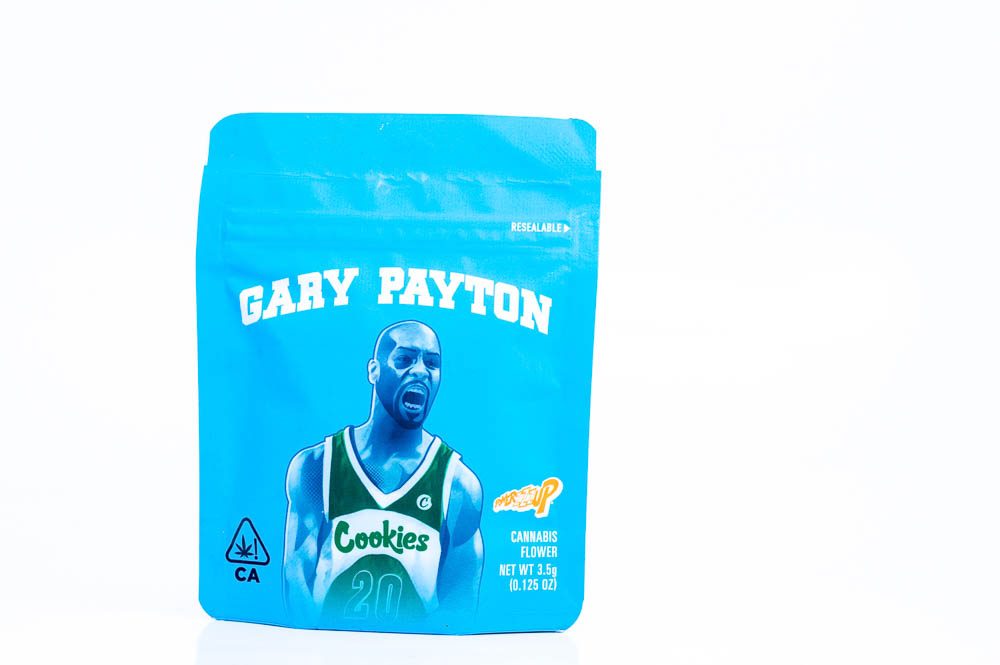
Representing Authenticity Through The Hustle
Bay Area rappers have long been known for the hustle. Almost any rapper that comes from the area has a serious catalog of music. Annual releases, multi-annual releases, and double-disc albums are all common from Bay Area artists. This type of volume of recording isn’t rare for artists but putting this much music out and the effort it takes to push each release is admirable. Currensy and others have adopted this style of frequent releases to leverage the streaming era, but the Bay has been doing this at a Hall of Fame pace since compact discs and cassette tapes.
From music to branding in general, consumers want authenticity. Most artists will tell you how important organic vibes are to their process; whether it’s picking beats, which Berner says is done by “whatever makes you immediately start freestyling,” or picking the right cannabis phenotypes. The rapper and entrepreneur, says that the right pheno has to start with taste first, then smell, the aroma in the air, and then the high. “If it checks all those boxes, then I’m good with it,” he remarks.
Upon asking what makes a new strain a hit single as opposed to just another track, he said, “When it’s organic, man. Like, Gary Payton was organic. We didn’t force nothing; we didn’t have to push the issue on nothing. It happened naturally. It was cool and worked great. When things happen the way it’s supposed to, that’s when it really works.”
Growing An Empire from San Francisco Roots
On the surface level, I thought this was just a way to better monetize their careers. I thought it was fueled simply by the hustle. Berner told me it was more rooted in what it took to get noticed coming from outside of LA. He says, “We’re like [the] Amish. We have to work twice as hard, man. I’ve put out a lot of albums and it never stops. The way we are out here in the Bay, we were told if you can’t write a verse on the spot, you ain’t got it. You got to the early studio sessions in San Quentin; guys like that would be there knocking out songs in front of you, like full songs. I got out to LA and saw artists do just pieces of a song. Even pieces of a hook. Maybe even just a concept. Like, laying down a mumble reference. I’m like, I’m from the Bay, we knock out full records. We do two to three records a day. I feel like that’s just the way we came up out here.”
This type of work ethic, confidence, passion, and collaboration clearly have bled into cannabis endeavors. Cookies isn’t just a strain or product. It’s not just a brand at this point. It’s a house of brands and a real platform for the cannabis industry to launch new strains, brands, and collaborations.
Outside of hip-hop and cannabis, the Bay is also universally known for start-ups, founders, and CEOs. Berner’s success needs to be given this level of credit. His San Francisco roots have paved the way for him to become one of the most successful start-up leaders in the country in this exciting new industry. While his hometown is known for tech start-ups and a culture that begets growth hacking; Berner has found a way to leverage his DIY music grind, cannabis knowledge, and Bay Area roots to independently launch his own company valued at hundreds of millions of dollars.
Berner tells us that competing in the Bay’s music scene prepared him for start-up life, “It’s work ethic man. The work ethic is there, the drive is there, and that independent blueprint is there. That’s the most important thing. I’ve done all my music myself. I don’t have a label, no one helping me, no A&R, no one helping me package things to roll out projects.” At this point, Berner has become more associated with weed than music, but it’s evident that consistency and hustle are what pave the way for both.
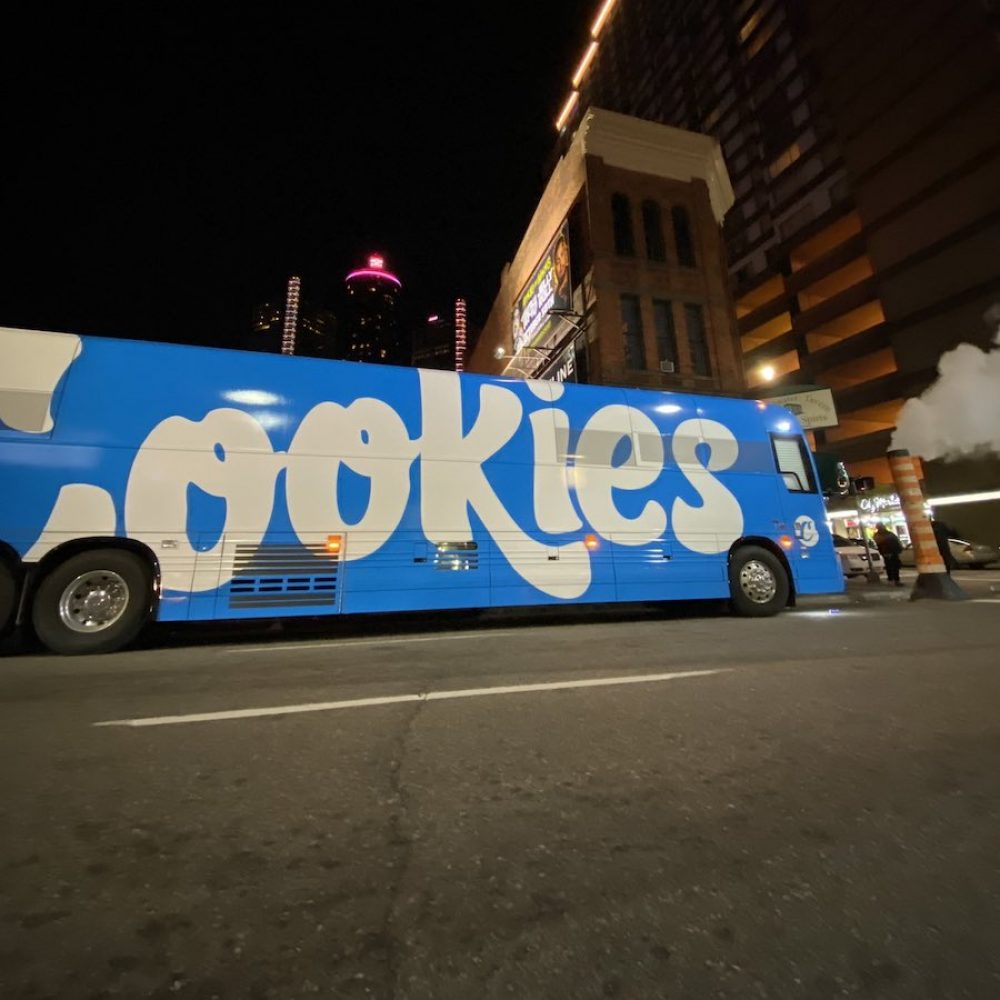
Photo from Berner’s Twitter @berner415
Direct to Consumer Marketing Tactics
Berner’s music career affords him the ability to promote music, music videos, advertise on social media, sell merchandise globally, and drive a branded tour bus across the country. The authentic ties between his music and cannabis brands provide an almost unfair level of marketing that the traditional cannabis company isn’t afforded. In an industry plagued by marketing restrictions, Berner has created a voice to go direct to consumers with his narrative, commenting, “music is a great way to market.”
“With Instagram being shadow banned, Twitter being shadow banned, and YouTube being weird, music provides a way to really brand things and connect with the people in an unfiltered way. I’m able to use music kind of as my voice in the industry.” To be honest, anyone could do it, but do they have what it takes to create and push this much music and cannabis projects at a single time?
During our chat, Bern had told me he hadn’t been to sleep yet. It was 9:30am PST when our call started. I could sense a touch of sheer excitement and an awe at how busy his schedule has become lately. “I was up all night, just a lot of business stuff going on. And this shit is definitely draining dude. There is so much stuff going on. There is a lot of work to do,” the entrepreneur marked.

Finding New Inspirations
Staying relevant in music alone is much like thriving in cannabis. There is a never-ending thirst on the consumer base for something new and fresh. Whether it’s brand new and unique or built on remnants of the past with a fresh twist; music and cannabis share many similarities even through the creation of each.
I asked about what inspires him to stay pushing the envelope in both areas at this point. Having 40 something albums out and a company worth 100s of millions of dollars, Berner responded, “They go hand in hand. If you’re not putting out new shit, your shit’s going to get stale. That’s the way I look at it. You can drop timeless records and they could always have a moment in people’s lives. But if you’re not going to continue to curate and make things you’ll become irrelevant. Both things apply to the weed game and the music game.”
While we have only covered a fraction of Cookies latest drops and news, we can tell from afar there is a lot going on. You can love or hate Cookies. But, you’d be wrong to knock anyone that hustles this hard and puts on for the culture.
More Content
THE RELATIONSHIP BETWEEN BACKWOODS AND HIP-HOP
TERPENES FOR ANXIETY: 3 TERPS IN CANNABIS WITH STRESS-RELIEVING PROPERTIES
RAPPER WEED: WHICH RAPPERS HAVE CANNABIS PRODUCTS IN THE MARKET? WHO ACTUALLY HAS THE FIRE?
18 COMPANIES THAT DON’T DRUG TEST THEIR EMPLOYEES FOR WEED
7 TIPS FOR MARKETING CANNABIS AND CBD ON TIKTOK AND INSTAGRAM
